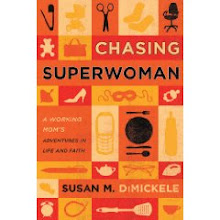Once I signed on with an agent, I could hardly wait to get my vision for Chasing Superwoman to the publishers.
But wait is exactly what I did.
My agent, Rachelle, explained to me that I didn’t have a platform. And because I didn’t have a platform, we’d have to be strategic. The proposal would have to be perfect. She wanted me to refine (and rework) my sample chapters, and she also wanted to float my idea to publishers to generate interest before sending the proposal.
Timing is everything.
It sounded like she knew what she was talking about, but deep down I wondered if she thought my writing wasn’t going to make the cut. Why the heck did I need a platform anyway?
I would quickly learn.
If you are a non-fiction writer and you’re going to tell other people about your view of the world (and expect them to buy your book), you need a platform to speak from. People should already be listening to you. You should be well known as an expert (even an authority) in your field. Celebrities and politicians have platforms. In Christian circles, pastors and leaders of large churches and ministries have platforms.
I wasn’t a celebrity, politician, or church leader. I had a voice, not a platform.
It didn’t quite seem fair. I’m not a celebrity. I’m also not the Church Lady or a pastor’s wife. Where are the career women out there who are writing about faith and the spiritual struggles of the working mother? Over 75% of women with school-aged children are working outside the home. Does the church even hear our voice? Or is it going to take a celebrity to wake up the Christian publishing houses?
Rachelle didn’t argue with my logic. She just brought me down to reality. In reality, I was a lawyer. Sure, I had given dozens of speeches, edited books, and written articles on legal issues, but that didn’t mean anyone would buy my book about faith and motherhood. After all, everyone knows that lawyers are the least spiritual group of people on the planet. Heck, maybe being a lawyer was even a strike against me in the Christian publishing world.
But it’s who I am.
Through the whole platform discussion, I learned (again) to have patience and adjust my expectations. But I also determined I would not give up.
Yes, this whole platform discussion is incredibly frustrating for a first-time author. Many first-time authors never get past it, and I consider myself lucky (and blessed!) to have gotten on to publishing.
Does platform (or lack thereof) frustrate you? You're in good company.
Tuesday, December 15, 2009
How I Got Published – Part 2 (Overcoming Platform)
Labels:
Getting Published,
Writing
Subscribe to:
Post Comments (Atom)










No comments:
Post a Comment